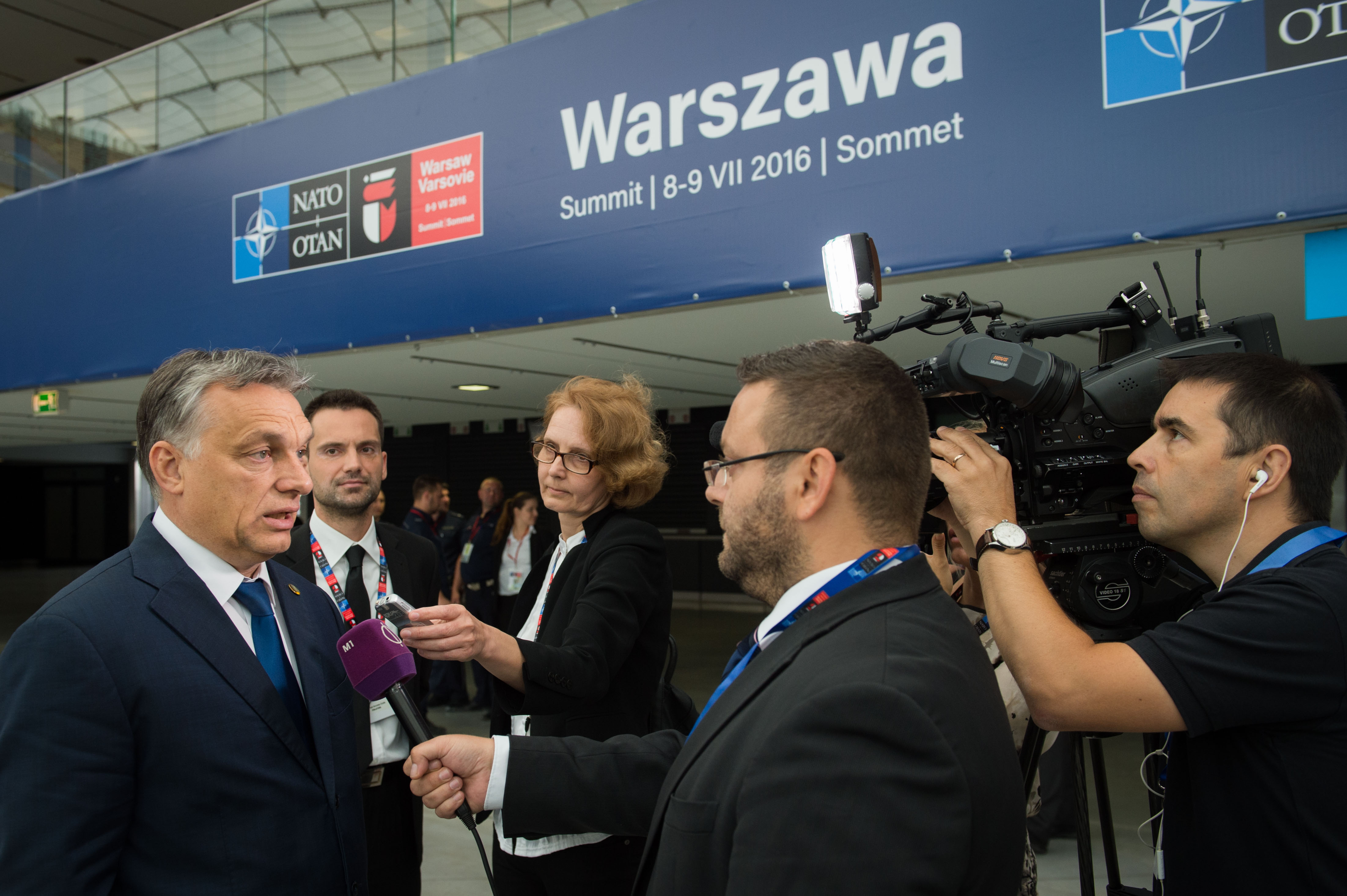
He said that Hungary sought to ensure that the organisation “becomes involved in European efforts at halting illegal migration”. Mr. Orbán said that “We have won NATO’s support to back our side: […] we stated that illegal migration must be stopped, that the external borders must be protected, and that the uncontrolled influx brings with risks which are not only of a civilian nature, but also affect military security”.
He added that it is in NATO’s best interest to eliminate this phenomenon, and that therefore NATO will also mobilise certain capabilities – primarily for the protection of the sea borders.
Regarding the NATO-Ukraine meeting, Mr. Orbán said that Hungary has always supported its eastern neighbour’s efforts to integrate into this security and defence system, “but this idea does not have majority support here”.
As an example of this, at the NATO summit in Bucharest members voted against Ukraine’s accession, and “therefore this issue is not on the agenda today” because “views on this subject are sharply divergent”, as “Ukraine is a country in a difficult situation, and we cannot see how in the short term it could be westernised – either in terms of economic functioning, public administration or defence”.
“Although we are intent on this, to date our results have been poor, rather than promising –bearing in mind the time invested”, the Prime Minister said, adding that the attendees were strongly in favour of Macedonia’s urgent accession, as rejecting this would be “a strategic error for which we might have to pay a high price later”. He added that Hungary also has a basic interest in Macedonia joining NATO after Montenegro, another Balkan country.
Defence of eastern wing strengthened without violation of NATO-Russia pact
In his statement – also broadcast on public service news television channel M1 – Mr. Orbán pointed out that after the East-Central European countries joined the North Atlantic Treaty Organization, for some years there was a debate on whether “we should confine ourselves to membership, or take the next step, and also install NATO’s military capabilities in the region”. The Prime Minister stressed that “No one wanted to ensure Central Europe’s military security by making Russia our enemy”.
Summing up the essence of the decision adopted at the Warsaw summit, Mr. Orbán said that “We shall not violate earlier NATO-Russia agreements, but there will be a continuous rotating military presence in some Central European countries, while military leadership centres will be set up in some other countries – including Hungary”.
According to the Prime Minister, the location of the Hungarian military leadership centre has already been identified, so that “we have the leadership structure in place if necessary – should the need arise to bring military forces to Hungary for our defence”.
Mr. Orbán said that for this reason the summit was also extremely important in terms of the security of Hungary and the Hungarian people.

